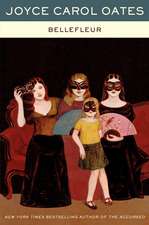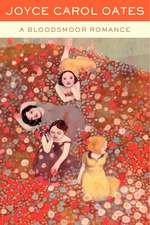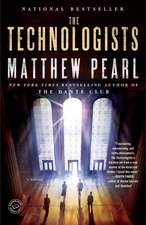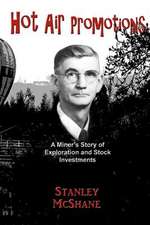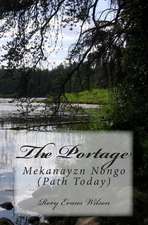Pasadena
Autor David Ebershoffen Limba Engleză Paperback – 30 iun 2003
Preț: 122.83 lei
Nou
Puncte Express: 184
Preț estimativ în valută:
23.51€ • 25.52$ • 19.75£
23.51€ • 25.52$ • 19.75£
Carte disponibilă
Livrare economică 01-15 aprilie
Preluare comenzi: 021 569.72.76
Specificații
ISBN-13: 9780812968484
ISBN-10: 0812968484
Pagini: 520
Dimensiuni: 130 x 206 x 28 mm
Greutate: 0.48 kg
Ediția:Rh Trade Pbk.
Editura: Random House Trade
ISBN-10: 0812968484
Pagini: 520
Dimensiuni: 130 x 206 x 28 mm
Greutate: 0.48 kg
Ediția:Rh Trade Pbk.
Editura: Random House Trade
Notă biografică
David Ebershoff is the author of The Danish Girl, a New York Times Notable Book and the winner of the Rosenthal Foundation Award from the American Academy of Arts and Letters and the Lambda Literary Award. His collection of stories, The Rose City, was named one of the best books of 2001 by the Los Angeles Times. His books have been published in more than a dozen countries to critical acclaim. Since 1998, he has been the publishing director of the Modern Library. He has taught at New York University and Princeton, where he is now a visiting lecturer. Originally from Pasadena, he is a graduate of Brown University and the University of Chicago, and he currently lives in New York City. He can be reached at www.ebershoff.com.
From the Hardcover edition.
From the Hardcover edition.
Extras
ON A DECEMBER MORNING in 1944, Mr. Andrew Jackson Blackwood—a young-faced, self-made man who had been in California twelve or fourteen years, depending on whom you asked—was making his way down El Camino Real. He was driving his yellow Imperial Victoria on his way to a real-estate convention in San Diego. At present he was somewhere between Dana Point and Oceanside, but many miles back his Automobile Club map had flown out the window, the wings of its paper-folds extending and flapping away. The fluttery movement—and the car’s sudden swerve as he lunged for the accordioned map—made him think of a large, ancient bird lifting itself into extinction. This was a more morose thought than Blackwood was used to, and it didn’t stay with him, flitting away like the map itself. But Blackwood had a sense of direction, he liked to tell himself, and he continued on his way.
Yet by now he could no longer be certain that he was still traveling down El Camino Real; had he made a wrong turn somewhere back? The road cut through dormant pea fields and lettuce farms and a patch of shallots, passing an avocado orchard and a lemon grove protected by eucalyptus windbreak. It climbed a scrub-oak terrain burned gold in autumn where at hillcrest a rattler stretched belly-up in the sun. Thin, shabby utility poles stood across the fields like a line outside a poorhouse, and upon the drooping wires sat a family of garbage-fed gulls. Every now and then the road turned sharply and the hammered pewter of the Pacific would appear in the distance and Blackwood would inhale, tasting the salt on the breeze. He was listening to the kid announcer on the KCRO radio news, and lately word from Europe was better than expected, the Americans marching swiftly up the wine-cold valleys of the Moselle. Blackwood thought of the boys weighted down by carbine and canteen, and it occurred to him just then, as he descended a hill and the ocean lay before him, that the war would end sooner than most dared to hope. The soldiers would return en masse and many would request passage to Long Beach or Coronado and each would need a bungalow and a patch of ryegrass for himself and his honey-haired girl. The world after the war would be different. There would be an unprecedented demand. Someone would supply it. The idea came to Andrew Jackson Blackwood, complete and formed.
And this was what distinguished Blackwood from the rest, he liked to tell himself—whether when meditating upon the passage of another day while falling asleep in his mint-green pajamas, or at the closing of yet another deal around the bank’s white-oak table. Blackwood looked only forward, never back: the cuffs of history never locked about his wrists and throat.
In an open stretch of flatland close to the shore, he spotted a farm stand tended by a girl with dark, nostalgic eyes. A tulip tree shaded the stand, and Blackwood slowed the Imperial Victoria as he passed it. The girl looked sad, perhaps because of her skimpy display of onion and the day’s catch in a box of ice: three cigar-shaped flyingfish on their sides, their woven silver wings catching the sun. Behind the stand was a small farm, its turned onion field edging an arroyo dense with lemonade berry. The farm extended to the ocean, a perfectly underutilized tract of land, and Blackwood—whose first speculation in California real estate all those years ago had hauled him north across the border from poor to rich—swerved and turned down the dirt road.
He was a thin but strong man whose Broadway Brothers suits fit him well. In 1931 he had arrived in Pasadena unnoticed, an import from Maine who, with a small wad of money of questionable origin and a full, boyish smile, bought an abandoned whitewashed mansion on Orange Grove Avenue that had once belonged to a family whose money had been made and lost in ice. Blackwood converted it into a rooming house open to anyone who could push the nightly fee through the slot in the cashier’s cage. Because he was sympathetic to the outsider, from the beginning Blackwood accepted the money of any and all men—Negro, Mexican, Chinese, even a girl or two in dire straits—at a time when most other landlords turned away those with a hue in their flesh or a pickled breath. This and a general distrust of the police kept Blackwood’s rooming house full and brought him rapid success in the world of the down-and-outs. Eventually, other properties followed, dilapidated and distressed, picked up for pennies on the dollar. Early on, Blackwood became friendly with a professor of economics at Cal Tech, a man they called Stinky Sweeney, and together Blackwood and Sweeney pondered the many ways to expand their pies while most others watched theirs shrivel in the pan. And oh how Blackwood’s pie had grown since he’d come to California! Spanish-tiled mansions divided into by-the-week apartments; long-closed dress and millinery shops on Colorado Street reconfigured as pawn emporiums and pool halls and even a lounge where girls danced in their rationed silk underwear; and the plots of sandy land bought for almost nothing from desperate, tax-hounded people who sometimes paid Blackwood to take the property off their hands! He padded his real-estate holdings with a position in steel stocks, in oil shares, and in a piece of a rubber-belt company that held a patent. But Blackwood knew that there was no asset in California like the parched terra firma that could crumble in the hand.
The dirt road ended at three small cottages on a headland bluff. They overlooked the ocean, their foundations close to the eroding lip, where ropes of ice plant grew in rappel and belay. The cottages were on the verge of decrepitude, shredded tar paper and horizontal plank warped white with salt, and the arroyo-stone chimneys leaned precariously against the scabbed corrugated roofs. The wind was throwing dirt and sand in the bantam-pecked yard, and from the barn Blackwood heard a horse sneezing and the groan of an udder-sore cow. Blackwood, so skilled at this sort of evaluation, noted that there wasn’t a telephone pole in sight. What was it Blackwood had first taught himself when he arrived in California all those years ago? The true developer sees value where others turn away.
Blackwood got out of his car and called hello in a friendly way. What Blackwood didn’t know about himself was that pink-cheeked friendliness came naturally to him, and that others sensed it and trusted it, perhaps even when they should not. He was handsome in a safe, pale-featured way—handsome enough for success to have come to him just a little more easily than to most; but he was unaware of this slight advantage. In fact, Blackwood was certain that he had started off with no advantages at all. He was equally unaware of his natural powdery scent, much like a baby’s, not unpleasant but unusual for a man of forty-four.
Oddly, however, on this December morning his typically cheerful “Hello! Anyone home?” emerged shrilly, as if he was nervous—like the call of a red-tail hawk. But Blackwood wasn’t the type of man who knew about birds and their calls. Since moving to California he had failed to grow curious about habitats and ranges and migration paths interrupted by the reach of man. Like most Pasadenans—and certainly he thought of himself as one, although others, many others, did not—he delighted when a bald eagle alit in the Arroyo Seco. Why, the Star-News had run a picture of such an event this very morning!—but this was the extent of Blackwood’s ornithological interest. Had it been greater, he might have noted earlier the sign along the dirt road that read:
CONDOR’S NEST
STAY OUT
“I’m afraid you’ve made a wrong turn,” someone said.
The voice came from behind one of the cottages, and Blackwood turned and removed his hat and said in that cheerful way of his, “Who’s there? How do you do? My name is Blackwood. Andrew Jackson Blackwood. Sorry to barge in.” A man appeared on the porch, and Blackwood offered his free hand.
“This is private property.”
“Yes, I’m aware of that. And I’m sorry to intrude, but in fact that’s why I turned down your drive. I thought we could have a chat.”
“You’ll have to leave.” The man was taller than Blackwood, broad in shoulder but weary in whiskered cheek. His hair was as black as crude oil, his eyes too, and this made Blackwood think of his thousand shares that had doubled in value three years in a row. Only then did Blackwood realize that his hand was still extended. He wondered why the stranger hadn’t offered his own, but the paw of the man’s right hand, Blackwood now noted, was wrapped around the deer-foot handle of a hunting knife, and this caused Blackwood’s heart to sit up in his chest. A waxy sweat broke out on his face as he noticed that the man’s shirt was sprayed with blood. On closer inspection, Blackwood could see that blood splattered the man’s pants as well. In the man’s hair, tiny rubies of blood sparkled, and there was a drop of blood on his lip, bright and round and trembling. Blackwood didn’t want to believe it, but the evidence suggested he had stumbled across a murder. Blackwood was silent, and his hand reached behind him for the Imperial Victoria’s door. He would try to leave.
“Who sent you here?”
“I . . . I . . .”
“Why did you come?”
“I . . . I . . .” But Blackwood couldn’t.
Suddenly there was a noise, like a log smacking the side of the cottage, and Blackwood’s knees, tender since his days kneeling in the flinty Maine soil, buckled, and he found himself huddled against the car, its door warm against his cheek. He heard the smacking noise again, and Blackwood, teary, looked to the man and was prepared to beg, to offer anything to be sent on his way without harm. The tears were hot on Blackwood’s lip.
The smacking repeated, and Blackwood peered through his fingers and finally noticed the large barracuda hanging on hook and chain from the cottage eave. Its yellowish, bat-shape tail fin whipped the side of the house, and its long, bulleted head surged up the chain and then fell back, its mirror pelvic fins quivering. Its silver belly had been sliced from anal fin to gill, and blood dripped from the fish into a puddle, attracting tiny blue Euphilotes butterflies.
How could Blackwood have been so silly? The man was no more a murderer than Blackwood himself; Blackwood had panicked, something he had long ago taught himself to avoid. Fear keeps a man from accomplishing things, he knew; fear chains a man to his past. He was both disappointed in himself and aware of the man staring at him down in the dirt. Blackwood pulled himself up, attempting to wipe the distress from his brow. “Did you catch her?”
The man nodded and stared in a way that made Blackwood feel as if his skin were being penetrated. The man’s flesh was warmly brown. Blackwood noted more than a drop of Mexican in him, and wondered where the man was from.
“Do you eat barracuda around here?”
“Not much anymore. The schools are thinning out.” The man turned his knife in his palm as if he were a child showing it off and then, with a wrist-snap, flung it into the barracuda’s head, sinking the blade between the fish’s feline eyes. Her jaw popped open and a ribbon of blood rushed between her fangs and she stretched herself to her full three and a half feet and died on the hook.
The sight of it pressed the breath from Blackwood’s chest. Then he managed, “May I ask how long you’ve lived here, Mr. . . . ?”
“Why do you want to know?”
Blackwood refilled his lungs. “Well, you see, I’m a real-estate developer.” He said this as if he were announcing that he was a teacher or a fireman or a member of the clergy; that was how vital Blackwood thought of himself to the community, to the great goal of California’s progress. “I was wondering if you’d ever be interested in selling your land, Mr. . . . ?”
The man walked to the fish and pulled the knife from its head. He wiped the blade clean on his pants and said he’d never thought about selling anything at Condor’s Nest.
“I would imagine,” Blackwood tried again, “you might be able to sell this piece of property and buy yourself a nice house in town somewhere. Someplace where the roads are paved, perhaps?”
“I don’t want to go anywhere. I’ve traveled and now I’m home.”
“Do you mind if I ask how much land you have?”
“Ten and a half acres.”
“Ten and a half, is it?” Blackwood scanned the property; he wondered if the arroyo behind the barn would make subdivision difficult. Probably not, what with the way they’re putting up houses in the canyons. All you need is a pair of stilts and a concrete mixer. Easy enough these days. Or maybe Blackwood could dam up the arroyo and create a little green pond; people would like that, people would pay more for that. It’d be easy enough: throw a wall of soil across the arroyo’s mouth and catch the winter runoff. He’d have to be careful about flash-flooding, but Blackwood knew what he was doing. On closer inspection, it appeared that perhaps once someone had tried this: the foundation of a collapsed dam remained in place. He thought to ask, “You ever think about closing it up? Make yourself a nice little casting pond?”
Then for the first time the man’s hard face softened. “How much is it worth, Mr. Blackwood?”
“The arroyo?”
“The whole farm.”
Blackwood hesitated, thinking that this might be some sort of test. “I’m sure you’ll understand when I say I don’t go around tossing out numbers if the other party’s not interested.” He added, “I’m sorry, sir. I didn’t catch your name.”
“Bruder.”
“Bruder? A pleasure, Mr. Bruder.” Blackwood moved to tip his hat, but then he realized that it was gone and he ran his hand through his hair, which was so fine it parted randomly when the wind blew upon it. The hat sat overturned in the dirt, a sagebrush lizard inching toward it, and Blackwood felt the sun burning his ears and his neck. His skin was more sensitive than most people’s. Whenever he appeared in a terry bundle at poolside or on the beach, he would say he had a northerner’s complexion, careful not to be any more specific than that; he knew that some people thought he was from Canada, and that was fine with Andrew Jackson Blackwood.
He went to retrieve his hat when Bruder said, “Would you like to come inside, Mr. Blackwood?”
In the middle cottage were two rooms, a kitchen with a coil-handled stove and an alcove hidden by a rose-petal sheet strung along a wire. There was a terrible bareness to the place. Dark kerosene smoke painted the walls, and Blackwood took this as a sign that he was dealing with an unsophisticated man. He supposed that Bruder was one of those farmers who could no longer make a go of it; and something in Blackwood wondered why Bruder would even try. Bruder opened a cupboard that held nothing but a tin of sugar, three white onions, a jar of apple butter, and a hard round loaf of bread. Blackwood sensed things turning his way, and that was what he had learned over the years: to keep a wet finger in the wind.
“Coffee, Mr. Blackwood?” Bruder lit the stove.
A few minutes later, Blackwood took the cup of coffee and Bruder poured himself a jelly jar of jug wine. “There’s a long history at Condor’s Nest,” Bruder said. “I can’t think of anything that would convince me to sell it off.”
“There’s always a history, Mr. Bruder.”
“A lot has happened here.”
“I’m sure that’s true.”
“I’ve never wanted to sell this land.”
“Sometimes it’s hard to think about.” All those years ago, it had been so easy for Blackwood to don a developer’s hide. The trick was to look them in the eye once, and never again. A few months ago, he’d read an article in the Star-News about a tennis champion who was asked about the key to winning Wimbledon, and the man—there was a photograph of him in his white sweater-vest—had replied, “Just keep moving forward.” Blackwood couldn’t agree more. He looked forward to reporting to Stinky about the ten and a half acres and the strange man, who had a blue-black scar at his temple that eerily darkened and lightened like the shifting winter ocean. “It was like stepping back in time,” Blackwood would say on the telephone. “Like meeting a forty-niner in person.”
“Do you live alone, Mr. Bruder?”
Bruder sat up, and Blackwood could see that once he’d been handsome. Could’ve been in pictures, thought Blackwood, with those heavy lids and that nose, long but not fleshy, like John Gilbert’s; it was Blackwood’s one vice: Saturday night at Grauman’s Egyptian, staring up into Gable’s huge, mattress-size eyes. That, and reading the American Weekly insert and the Star-News society page for the latest breeze. Blackwood took perhaps a little too much pleasure in the misfortune of others, but he had no reason—at least not yet—to believe that he would come to regret this glee.
“I have a family,” said Bruder, standing and taking Blackwood’s cup. “Now you’ll have to leave.”
Bruder walked Blackwood outside, and a pride rose in Blackwood’s swift and lean heart as he saw the yellow car sitting in the sun, the ocean reflecting in the gleam of its hood. He expected Bruder to say that she was a hell of an automobile: every now and then that’s what strangers said on Colorado Street—not that the Imperial Victoria was the fanciest car running around Pasadena, heavens no, Blackwood wasn’t one to waste his dough. But the car was the first substantial item Blackwood had ever bought for himself, and he loved her as another man might love his dog, or his wife. Its wheels were white, and its yellow skin was as bright as a Model’s banana, and every now and then he would click his heels when he realized she was his. It’s because Blackwood had never thought he would one day own an Imperial Victoria. Certainly he’d never thought he’d be sizing up ten and a half acres of subdividable farmland. You never know where a dirt road will take you in life; that’s what he had told himself back in muddy Maine, and now look at Andrew J. Blackwood.
“Why don’t you think about it, Mr. Bruder?”
“I’ll never sell my land. Not at Condor’s Nest.”
“Never’s a long time, Mr. Bruder. I can stop by another day and we can continue our chat.”
“That won’t be necessary.”
“But I could if you wanted.”
“No thank you, Mr. Blackwood.”
“Is that your daughter tending the farm stand, Mr. Bruder?”
“Drive carefully, Mr. Blackwood. A lot of rocks round here. One might fly up and dent your hood.”
Andrew Jackson Blackwood climbed into his car and turned it around and drove down the long dirt lane. In his mirror, Bruder and Condor’s Nest fell away, the dust and the dead mayweed blossoms rising, and the endless ocean. When he reached the road he waved to the girl, who was busy shifting the box of flyingfish into the tulip tree’s moving shadow. “What’s your name?” he called.
“Sieglinde!”
“What is it?”
“I’d get out of here if I were you!”
Blackwood waved again and then drove on to the convention in San Diego, certain that Mr. Bruder would be glad to see him when he returned on his way home in a few days.
From the Hardcover edition.
Yet by now he could no longer be certain that he was still traveling down El Camino Real; had he made a wrong turn somewhere back? The road cut through dormant pea fields and lettuce farms and a patch of shallots, passing an avocado orchard and a lemon grove protected by eucalyptus windbreak. It climbed a scrub-oak terrain burned gold in autumn where at hillcrest a rattler stretched belly-up in the sun. Thin, shabby utility poles stood across the fields like a line outside a poorhouse, and upon the drooping wires sat a family of garbage-fed gulls. Every now and then the road turned sharply and the hammered pewter of the Pacific would appear in the distance and Blackwood would inhale, tasting the salt on the breeze. He was listening to the kid announcer on the KCRO radio news, and lately word from Europe was better than expected, the Americans marching swiftly up the wine-cold valleys of the Moselle. Blackwood thought of the boys weighted down by carbine and canteen, and it occurred to him just then, as he descended a hill and the ocean lay before him, that the war would end sooner than most dared to hope. The soldiers would return en masse and many would request passage to Long Beach or Coronado and each would need a bungalow and a patch of ryegrass for himself and his honey-haired girl. The world after the war would be different. There would be an unprecedented demand. Someone would supply it. The idea came to Andrew Jackson Blackwood, complete and formed.
And this was what distinguished Blackwood from the rest, he liked to tell himself—whether when meditating upon the passage of another day while falling asleep in his mint-green pajamas, or at the closing of yet another deal around the bank’s white-oak table. Blackwood looked only forward, never back: the cuffs of history never locked about his wrists and throat.
In an open stretch of flatland close to the shore, he spotted a farm stand tended by a girl with dark, nostalgic eyes. A tulip tree shaded the stand, and Blackwood slowed the Imperial Victoria as he passed it. The girl looked sad, perhaps because of her skimpy display of onion and the day’s catch in a box of ice: three cigar-shaped flyingfish on their sides, their woven silver wings catching the sun. Behind the stand was a small farm, its turned onion field edging an arroyo dense with lemonade berry. The farm extended to the ocean, a perfectly underutilized tract of land, and Blackwood—whose first speculation in California real estate all those years ago had hauled him north across the border from poor to rich—swerved and turned down the dirt road.
He was a thin but strong man whose Broadway Brothers suits fit him well. In 1931 he had arrived in Pasadena unnoticed, an import from Maine who, with a small wad of money of questionable origin and a full, boyish smile, bought an abandoned whitewashed mansion on Orange Grove Avenue that had once belonged to a family whose money had been made and lost in ice. Blackwood converted it into a rooming house open to anyone who could push the nightly fee through the slot in the cashier’s cage. Because he was sympathetic to the outsider, from the beginning Blackwood accepted the money of any and all men—Negro, Mexican, Chinese, even a girl or two in dire straits—at a time when most other landlords turned away those with a hue in their flesh or a pickled breath. This and a general distrust of the police kept Blackwood’s rooming house full and brought him rapid success in the world of the down-and-outs. Eventually, other properties followed, dilapidated and distressed, picked up for pennies on the dollar. Early on, Blackwood became friendly with a professor of economics at Cal Tech, a man they called Stinky Sweeney, and together Blackwood and Sweeney pondered the many ways to expand their pies while most others watched theirs shrivel in the pan. And oh how Blackwood’s pie had grown since he’d come to California! Spanish-tiled mansions divided into by-the-week apartments; long-closed dress and millinery shops on Colorado Street reconfigured as pawn emporiums and pool halls and even a lounge where girls danced in their rationed silk underwear; and the plots of sandy land bought for almost nothing from desperate, tax-hounded people who sometimes paid Blackwood to take the property off their hands! He padded his real-estate holdings with a position in steel stocks, in oil shares, and in a piece of a rubber-belt company that held a patent. But Blackwood knew that there was no asset in California like the parched terra firma that could crumble in the hand.
The dirt road ended at three small cottages on a headland bluff. They overlooked the ocean, their foundations close to the eroding lip, where ropes of ice plant grew in rappel and belay. The cottages were on the verge of decrepitude, shredded tar paper and horizontal plank warped white with salt, and the arroyo-stone chimneys leaned precariously against the scabbed corrugated roofs. The wind was throwing dirt and sand in the bantam-pecked yard, and from the barn Blackwood heard a horse sneezing and the groan of an udder-sore cow. Blackwood, so skilled at this sort of evaluation, noted that there wasn’t a telephone pole in sight. What was it Blackwood had first taught himself when he arrived in California all those years ago? The true developer sees value where others turn away.
Blackwood got out of his car and called hello in a friendly way. What Blackwood didn’t know about himself was that pink-cheeked friendliness came naturally to him, and that others sensed it and trusted it, perhaps even when they should not. He was handsome in a safe, pale-featured way—handsome enough for success to have come to him just a little more easily than to most; but he was unaware of this slight advantage. In fact, Blackwood was certain that he had started off with no advantages at all. He was equally unaware of his natural powdery scent, much like a baby’s, not unpleasant but unusual for a man of forty-four.
Oddly, however, on this December morning his typically cheerful “Hello! Anyone home?” emerged shrilly, as if he was nervous—like the call of a red-tail hawk. But Blackwood wasn’t the type of man who knew about birds and their calls. Since moving to California he had failed to grow curious about habitats and ranges and migration paths interrupted by the reach of man. Like most Pasadenans—and certainly he thought of himself as one, although others, many others, did not—he delighted when a bald eagle alit in the Arroyo Seco. Why, the Star-News had run a picture of such an event this very morning!—but this was the extent of Blackwood’s ornithological interest. Had it been greater, he might have noted earlier the sign along the dirt road that read:
CONDOR’S NEST
STAY OUT
“I’m afraid you’ve made a wrong turn,” someone said.
The voice came from behind one of the cottages, and Blackwood turned and removed his hat and said in that cheerful way of his, “Who’s there? How do you do? My name is Blackwood. Andrew Jackson Blackwood. Sorry to barge in.” A man appeared on the porch, and Blackwood offered his free hand.
“This is private property.”
“Yes, I’m aware of that. And I’m sorry to intrude, but in fact that’s why I turned down your drive. I thought we could have a chat.”
“You’ll have to leave.” The man was taller than Blackwood, broad in shoulder but weary in whiskered cheek. His hair was as black as crude oil, his eyes too, and this made Blackwood think of his thousand shares that had doubled in value three years in a row. Only then did Blackwood realize that his hand was still extended. He wondered why the stranger hadn’t offered his own, but the paw of the man’s right hand, Blackwood now noted, was wrapped around the deer-foot handle of a hunting knife, and this caused Blackwood’s heart to sit up in his chest. A waxy sweat broke out on his face as he noticed that the man’s shirt was sprayed with blood. On closer inspection, Blackwood could see that blood splattered the man’s pants as well. In the man’s hair, tiny rubies of blood sparkled, and there was a drop of blood on his lip, bright and round and trembling. Blackwood didn’t want to believe it, but the evidence suggested he had stumbled across a murder. Blackwood was silent, and his hand reached behind him for the Imperial Victoria’s door. He would try to leave.
“Who sent you here?”
“I . . . I . . .”
“Why did you come?”
“I . . . I . . .” But Blackwood couldn’t.
Suddenly there was a noise, like a log smacking the side of the cottage, and Blackwood’s knees, tender since his days kneeling in the flinty Maine soil, buckled, and he found himself huddled against the car, its door warm against his cheek. He heard the smacking noise again, and Blackwood, teary, looked to the man and was prepared to beg, to offer anything to be sent on his way without harm. The tears were hot on Blackwood’s lip.
The smacking repeated, and Blackwood peered through his fingers and finally noticed the large barracuda hanging on hook and chain from the cottage eave. Its yellowish, bat-shape tail fin whipped the side of the house, and its long, bulleted head surged up the chain and then fell back, its mirror pelvic fins quivering. Its silver belly had been sliced from anal fin to gill, and blood dripped from the fish into a puddle, attracting tiny blue Euphilotes butterflies.
How could Blackwood have been so silly? The man was no more a murderer than Blackwood himself; Blackwood had panicked, something he had long ago taught himself to avoid. Fear keeps a man from accomplishing things, he knew; fear chains a man to his past. He was both disappointed in himself and aware of the man staring at him down in the dirt. Blackwood pulled himself up, attempting to wipe the distress from his brow. “Did you catch her?”
The man nodded and stared in a way that made Blackwood feel as if his skin were being penetrated. The man’s flesh was warmly brown. Blackwood noted more than a drop of Mexican in him, and wondered where the man was from.
“Do you eat barracuda around here?”
“Not much anymore. The schools are thinning out.” The man turned his knife in his palm as if he were a child showing it off and then, with a wrist-snap, flung it into the barracuda’s head, sinking the blade between the fish’s feline eyes. Her jaw popped open and a ribbon of blood rushed between her fangs and she stretched herself to her full three and a half feet and died on the hook.
The sight of it pressed the breath from Blackwood’s chest. Then he managed, “May I ask how long you’ve lived here, Mr. . . . ?”
“Why do you want to know?”
Blackwood refilled his lungs. “Well, you see, I’m a real-estate developer.” He said this as if he were announcing that he was a teacher or a fireman or a member of the clergy; that was how vital Blackwood thought of himself to the community, to the great goal of California’s progress. “I was wondering if you’d ever be interested in selling your land, Mr. . . . ?”
The man walked to the fish and pulled the knife from its head. He wiped the blade clean on his pants and said he’d never thought about selling anything at Condor’s Nest.
“I would imagine,” Blackwood tried again, “you might be able to sell this piece of property and buy yourself a nice house in town somewhere. Someplace where the roads are paved, perhaps?”
“I don’t want to go anywhere. I’ve traveled and now I’m home.”
“Do you mind if I ask how much land you have?”
“Ten and a half acres.”
“Ten and a half, is it?” Blackwood scanned the property; he wondered if the arroyo behind the barn would make subdivision difficult. Probably not, what with the way they’re putting up houses in the canyons. All you need is a pair of stilts and a concrete mixer. Easy enough these days. Or maybe Blackwood could dam up the arroyo and create a little green pond; people would like that, people would pay more for that. It’d be easy enough: throw a wall of soil across the arroyo’s mouth and catch the winter runoff. He’d have to be careful about flash-flooding, but Blackwood knew what he was doing. On closer inspection, it appeared that perhaps once someone had tried this: the foundation of a collapsed dam remained in place. He thought to ask, “You ever think about closing it up? Make yourself a nice little casting pond?”
Then for the first time the man’s hard face softened. “How much is it worth, Mr. Blackwood?”
“The arroyo?”
“The whole farm.”
Blackwood hesitated, thinking that this might be some sort of test. “I’m sure you’ll understand when I say I don’t go around tossing out numbers if the other party’s not interested.” He added, “I’m sorry, sir. I didn’t catch your name.”
“Bruder.”
“Bruder? A pleasure, Mr. Bruder.” Blackwood moved to tip his hat, but then he realized that it was gone and he ran his hand through his hair, which was so fine it parted randomly when the wind blew upon it. The hat sat overturned in the dirt, a sagebrush lizard inching toward it, and Blackwood felt the sun burning his ears and his neck. His skin was more sensitive than most people’s. Whenever he appeared in a terry bundle at poolside or on the beach, he would say he had a northerner’s complexion, careful not to be any more specific than that; he knew that some people thought he was from Canada, and that was fine with Andrew Jackson Blackwood.
He went to retrieve his hat when Bruder said, “Would you like to come inside, Mr. Blackwood?”
In the middle cottage were two rooms, a kitchen with a coil-handled stove and an alcove hidden by a rose-petal sheet strung along a wire. There was a terrible bareness to the place. Dark kerosene smoke painted the walls, and Blackwood took this as a sign that he was dealing with an unsophisticated man. He supposed that Bruder was one of those farmers who could no longer make a go of it; and something in Blackwood wondered why Bruder would even try. Bruder opened a cupboard that held nothing but a tin of sugar, three white onions, a jar of apple butter, and a hard round loaf of bread. Blackwood sensed things turning his way, and that was what he had learned over the years: to keep a wet finger in the wind.
“Coffee, Mr. Blackwood?” Bruder lit the stove.
A few minutes later, Blackwood took the cup of coffee and Bruder poured himself a jelly jar of jug wine. “There’s a long history at Condor’s Nest,” Bruder said. “I can’t think of anything that would convince me to sell it off.”
“There’s always a history, Mr. Bruder.”
“A lot has happened here.”
“I’m sure that’s true.”
“I’ve never wanted to sell this land.”
“Sometimes it’s hard to think about.” All those years ago, it had been so easy for Blackwood to don a developer’s hide. The trick was to look them in the eye once, and never again. A few months ago, he’d read an article in the Star-News about a tennis champion who was asked about the key to winning Wimbledon, and the man—there was a photograph of him in his white sweater-vest—had replied, “Just keep moving forward.” Blackwood couldn’t agree more. He looked forward to reporting to Stinky about the ten and a half acres and the strange man, who had a blue-black scar at his temple that eerily darkened and lightened like the shifting winter ocean. “It was like stepping back in time,” Blackwood would say on the telephone. “Like meeting a forty-niner in person.”
“Do you live alone, Mr. Bruder?”
Bruder sat up, and Blackwood could see that once he’d been handsome. Could’ve been in pictures, thought Blackwood, with those heavy lids and that nose, long but not fleshy, like John Gilbert’s; it was Blackwood’s one vice: Saturday night at Grauman’s Egyptian, staring up into Gable’s huge, mattress-size eyes. That, and reading the American Weekly insert and the Star-News society page for the latest breeze. Blackwood took perhaps a little too much pleasure in the misfortune of others, but he had no reason—at least not yet—to believe that he would come to regret this glee.
“I have a family,” said Bruder, standing and taking Blackwood’s cup. “Now you’ll have to leave.”
Bruder walked Blackwood outside, and a pride rose in Blackwood’s swift and lean heart as he saw the yellow car sitting in the sun, the ocean reflecting in the gleam of its hood. He expected Bruder to say that she was a hell of an automobile: every now and then that’s what strangers said on Colorado Street—not that the Imperial Victoria was the fanciest car running around Pasadena, heavens no, Blackwood wasn’t one to waste his dough. But the car was the first substantial item Blackwood had ever bought for himself, and he loved her as another man might love his dog, or his wife. Its wheels were white, and its yellow skin was as bright as a Model’s banana, and every now and then he would click his heels when he realized she was his. It’s because Blackwood had never thought he would one day own an Imperial Victoria. Certainly he’d never thought he’d be sizing up ten and a half acres of subdividable farmland. You never know where a dirt road will take you in life; that’s what he had told himself back in muddy Maine, and now look at Andrew J. Blackwood.
“Why don’t you think about it, Mr. Bruder?”
“I’ll never sell my land. Not at Condor’s Nest.”
“Never’s a long time, Mr. Bruder. I can stop by another day and we can continue our chat.”
“That won’t be necessary.”
“But I could if you wanted.”
“No thank you, Mr. Blackwood.”
“Is that your daughter tending the farm stand, Mr. Bruder?”
“Drive carefully, Mr. Blackwood. A lot of rocks round here. One might fly up and dent your hood.”
Andrew Jackson Blackwood climbed into his car and turned it around and drove down the long dirt lane. In his mirror, Bruder and Condor’s Nest fell away, the dust and the dead mayweed blossoms rising, and the endless ocean. When he reached the road he waved to the girl, who was busy shifting the box of flyingfish into the tulip tree’s moving shadow. “What’s your name?” he called.
“Sieglinde!”
“What is it?”
“I’d get out of here if I were you!”
Blackwood waved again and then drove on to the convention in San Diego, certain that Mr. Bruder would be glad to see him when he returned on his way home in a few days.
From the Hardcover edition.
Recenzii
“Wuthering Heights meets East of Eden.”
—The Wall Street Journal
“Pasadena is like a grand opera. . . . [David] Ebershoff must be applauded for the grandness of his design, for grand characters, For grand setting, and . . . for his grand vision of Pasadena as the center of ‘real history.’”
—Los Angeles Times Book Review
“Both a triumph of historical re-creation and a full-bodied romance . . . You feel that, if you were transported back to Pasadena in 1925, Ebershoff’s book would enable you to find your way around perfectly.”
—Baltimore Sun
“Ebershoff’s crafting of characters is so sharp, so perfect, that we ache for most of them. . . . [He] has us in thrall, and every word he writes counts."
—Fort Worth Star-Telegram
“Full of detail and unerring language . . . magically evokes the rich and varied landscape of Southern California.’”
—The Boston Sunday Globe
“A luxurious tragedy . . . gorgeous, full of romance and disaster . . . Pasadena is a novel to get lost in.”
—The Christian Science Monitor
—The Wall Street Journal
“Pasadena is like a grand opera. . . . [David] Ebershoff must be applauded for the grandness of his design, for grand characters, For grand setting, and . . . for his grand vision of Pasadena as the center of ‘real history.’”
—Los Angeles Times Book Review
“Both a triumph of historical re-creation and a full-bodied romance . . . You feel that, if you were transported back to Pasadena in 1925, Ebershoff’s book would enable you to find your way around perfectly.”
—Baltimore Sun
“Ebershoff’s crafting of characters is so sharp, so perfect, that we ache for most of them. . . . [He] has us in thrall, and every word he writes counts."
—Fort Worth Star-Telegram
“Full of detail and unerring language . . . magically evokes the rich and varied landscape of Southern California.’”
—The Boston Sunday Globe
“A luxurious tragedy . . . gorgeous, full of romance and disaster . . . Pasadena is a novel to get lost in.”
—The Christian Science Monitor
Descriere
Ebershoff's sweeping, richly imagined novel is set against the backdrop of Southern California during the first half of the 20th century and charts its rapid transformation from frontier to suburb. A Book Sense 76 selection.



